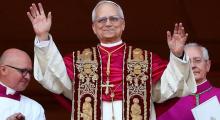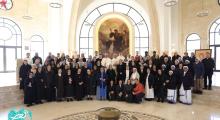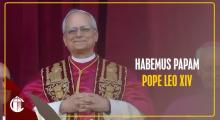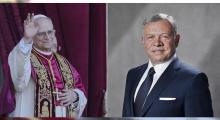Issued by the Catholic Center for Studies and Media - Jordan. Editor-in-chief Fr. Rif'at Bader - موقع أبونا abouna.org
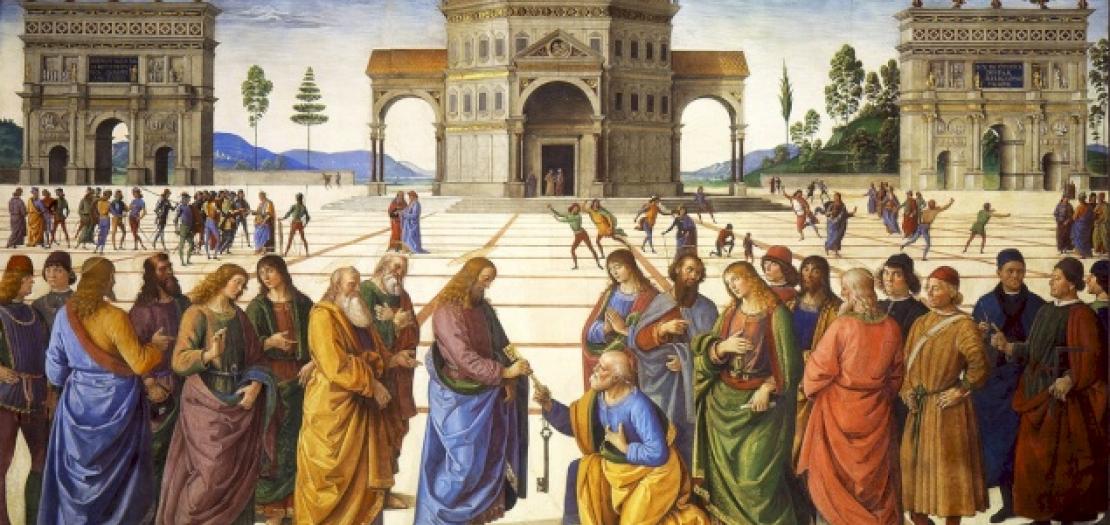
Following is the text of the meditation by Latin Patriarch of Jerusalem His Beatitude Pierbattista Pizzaballa for the XXI Sunday in ordinary time, August 27,2023:
“Listening” has been the central lesson highlighted throughout our journey in Matthew’s Gospel, from a Sunday to a Sunday: Listening to the Word on the mountain (Mt 17:1-9), the Word in the storm (Matthew 14:22-33) and last Sunday we saw that there is also a Word for the foreign woman, who is also called to finally hear the Word. (Matthew 15:21-28)
Listening to the Word is also central to today's passage (Matthew 16:13-20): We are still in a pagan land, where divinity has many faces, many names, many voices, making it hard to listen.
In this context, Jesus asks his disciples a question to see what they heeded and what they understood about what they heard, how the Word they heard led to knowledge, and specifically to a relationship.
For this is the purpose of listening: To grow in the relationship that sustains them, the relationship with Him. This is what Lord Jesus cares about.
Jesus asks this question first in reference to people (Matthew 16:13; who do people think He is?
According to the disciples report, people think Jesus is a Word of the past ("John the Baptist, others Elijah, others Jeremiah or any of the prophets,"( Matthew 16:14) a Word already spoken that has nothing new to say, which means a Word heard so many times, a Word that no longer opens any doors.
Therefore, in the people’s perspective it might seem that God does not have anything new to say.
However, when the same question is asked to the apostles, (Matthew 16:15) the answer is different, and it reveals a deep personal knowledge, peculiar to those who have listened to Him, and know Him.
In fact, for Peter, Jesus is not a great personage of the past, but He is simply the Son of the Father; and the Father is not so much a thought, an idea, but He is the Living One. He is life, and the one that gives life: "You are the Christ, the Son of the living God." (Matthew 16:16)
However, Jesus does not praise Peter because he answered right: For it is not a matter of guessing the right answer, as in an examination. Rather, Jesus praises Peter because he listened, "for neither flesh nor blood has revealed him to you." (Matthew 16:17)
Peter is blessed because his words came from listening: He did not listen to his own understanding, wisdom and strength, but opened himself to hear a Word revealed to him by the Father Himself. He who reveals His secrets to the little ones, (Matthew11:25) He who reveals Himself by revealing the beloved Son. (Matthew 17:5)
Hence, Peter is blessed. However, Jesus immediately makes it clear that this blessedness does not make him privileged, but rather subjects him to the act of service. (Matthew 16:18-19)
The revelation of the Father, to whom Peter opened the door, is now entrusted to him and to all the disciples as a responsibility, of which the keys are a symbol: The door can now be opened, for all, and this is the task of the disciples.
How does this happen? It is interesting that at the very moment Jesus entrusts the Father's revelation to Peter and the disciples, He also asks them to guard it in silence. (Matthew 16:20)
It seems paradoxical, but obviously this encapsulates a profound truth, with two aspects.
The first, which Peter and the others have yet to grow in their knowledge of the Son of the living God. In the very next verse, (Matthew 16:21) Jesus begins to announce to his disciples that the way to the eternal of the Father will be fulfilled through the promise of life through Passover, that is, His Passion and death. Therefore, the disciples must learn to listen all the way to the Word of the Father, until this Word is silent on the cross. It is this silence that will put a final say on the truth of the Word.
Secondly, to witness and communicate with Jesus is not limited to words, but rather through a life transformed by his Word, which gradually is configured in the image of his Passover. And on this humble testimony, the Church of the Lord will be founded: A community of people who hear the Word and are continually transformed by it.
If the Church is this. Then there is nothing to fear. “The gates of the netherworld shall not prevail against it.” (Matthew 16:18) On those who live in total reliance on the living Word of the Son of God.
In a period of time where the Christian communities are experiencing fears, and terror regarding their future and the Church, this Word brings back an important truth: It “will not prevail.” It is now up to us to be true guardians of His Word.
+Pierbattista



